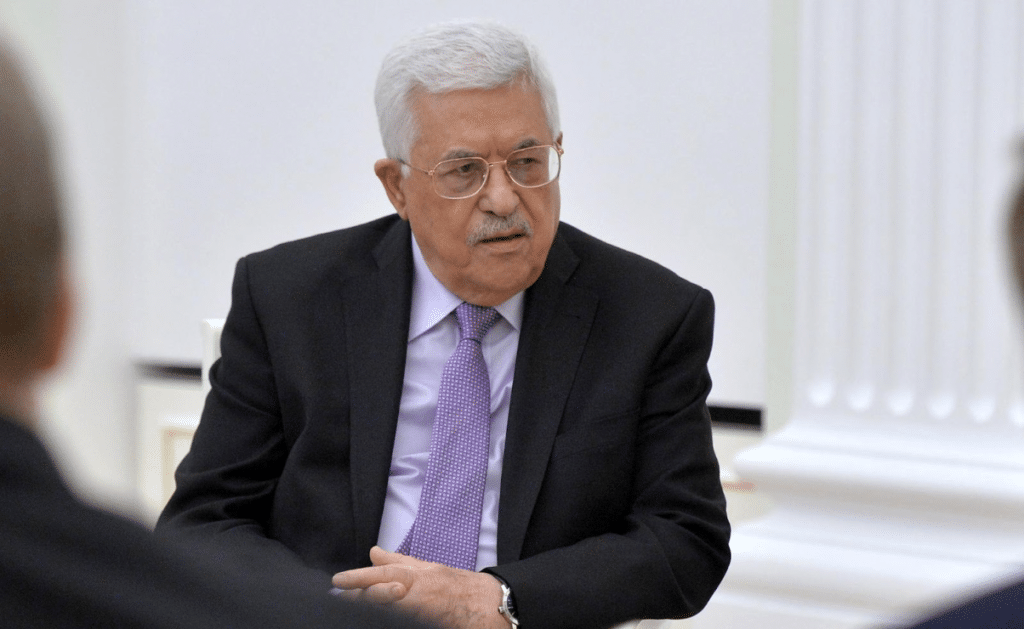Photo: Mahmoud Abbas, Wikimedia Commons
On 11 August fired Mahmoud Abbas, president of the Palestinian Authority (PA), 12 governors in the occupied West Bank and Gaza Strip. For the remaining three governors, the president announced that he will also propose replacements. While this political reorganisation is a clear attempt to respond to Palestinians' growing frustration and disillusionment with the unpopular PA, Abbas' recent move is unlikely to make a significant difference to this deep-rooted problem. This article will explain why many more reforms are needed to properly address the structural problems undermining the Palestinian Authority and its legitimacy.
Subordination to Israel
The current situation in the West Bank concerns a division of 165 Palestinian enclaves. These areas are partly under the administration of the PA. The rest, including 200 Israeli settlements, are under full Israeli administration. This political division was established in the 1993 Oslo Accords. However, these accords created the PA as an interim governing body that was supposed to lead to an independent Palestinian state, including East Jerusalem, the West Bank and the Gaza Strip, after a five-year period. This desired outcome has been structurally undermined by the illegal Israeli occupation, which makes the creation of a Palestinian state impossible.
Not only does the PA control only a small part of the occupied Palestinian territory in the West Bank, their administration is also largely dependent on Israeli approval. For example, the authority is forced to assist Israel with arrests and share intelligence with it under the principle of 'security coordination'. For these reasons, the Palestinian leadership is mostly seen as a kind of subcontractor to the Israeli occupation with no authority or legitimacy of its own.
Recently, these conditions have worsened further, with the current far-right, orthodox and nationalist Israeli government imposing several sanctions on the PA and openly calling for a full annexation of the West Bank, which would mean the collapse of the Palestinian Authority.
Lack of protection
Another negative consequence of the current Israeli government led by Netanyahu is the increase in settlements, military incursions and settler violence: according to the United Nations, 2023 is already the deadliest year for Palestinians in the West Bank since the Second Intifada. This increase in settler attacks has also led to a resurgence of armed Palestinian resistance. As a result, according to Al Jazeera pressured by Israel to suppress resistance fighters rather than protect them. This includes a "silent process whereby the PA bribes fighters, especially in Nablus, to hand over themselves and their weapons in exchange for amnesty from Israel if they serve their time in PA prisons." Following the principle of "divide and rule", this has led to the Palestinians and the Palestinian Authority, while both condemning the Israeli occupation, also fighting each other.
This expansion of anti-Palestinian violence thus further weakens the rule of the PA, which lacks the power to protect Palestinians from Israeli violence because it does not have full control over Palestinian territory. This seriously undermines the legitimacy of the authority, now seen by many as one of the obstacles to ending the illegal occupation.
Internal instability
The PA's lack of legitimacy is not only caused by its subservience to Israel and the consequent failure to protect its citizens. The PA also faces significant internal challenges that cause further destabilisation. However, one could argue that the PA's internal instability is still indirectly caused by outside influences.
One of the reasons for its internal weaknesses dates back to 2006, when the militant Islamist group Hamas won the Palestinian parliamentary elections, to which the secular Fatah party responded with a pre-emptive coup. Violent clashes followed and led to Hamas governing the Gaza Strip while Fatah, the PA's dominant party, "controls" the West Bank. This means that the Palestinian Authority can only exercise power over the West Bank, although it still lays claim to the Gaza Strip, where it has installed token governors, four of whom were also recently sacked.
The PA leadership is also plagued by a patriarchal culture of male politicians acting out of self-interest for personal gain: many of the key figures are older men clinging to their small share of power. The most curious example is that 87-year-old President Abbas was elected president from 2005 to 2009, but has refused to hold elections since 2006, meaning he is already 14 years past his term in office. The question, however, is whether elections under occupation can actually be democratic. Abbas argues that the reason for the continued postponement of elections is Israel's refusal to allow Palestinians in Jerusalem to participate in them. Critics, however, claim that the decision is due to the expectation that Hamas will win the elections. The decision to postpone the general elections has been widely denounced by Palestinians and has led to protests, causing, once again, a clash between the PA and Palestinians.
These internal divisions are also related to the great uncertainty over who will succeed Abbas, should the presidency become vacant. According to basic Palestinian law, the chairman of the Palestinian Legislative Council would become temporary president in such a case. In 2018, however, Abbas dissolved this body and, as mentioned, no new elections were held.
Because of these deep-rooted internal and external problems, replacing 12 governors will unfortunately not be enough to structurally restore legitimacy. Instead, the PA's internal democratic culture, power, and relationship with Israel must be fundamentally reformed. This will require not only efforts by the Palestinian Authority, but, above all, international cooperation and justice for all of Palestine in the form of the right to self-determination.




